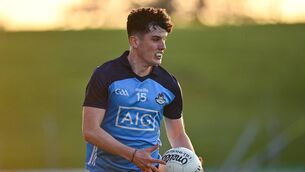Professionalism? It would destroy the GAA
‘I’m obviously being paid to do this but it is a job I would do for nothing if I could afford to’
‘If it (the series) is going to be revived there has to be more of that intermingling between the teams. There has to be a mutual respect, that this is not a war. I would like to see it starting again. Our players want it.’











